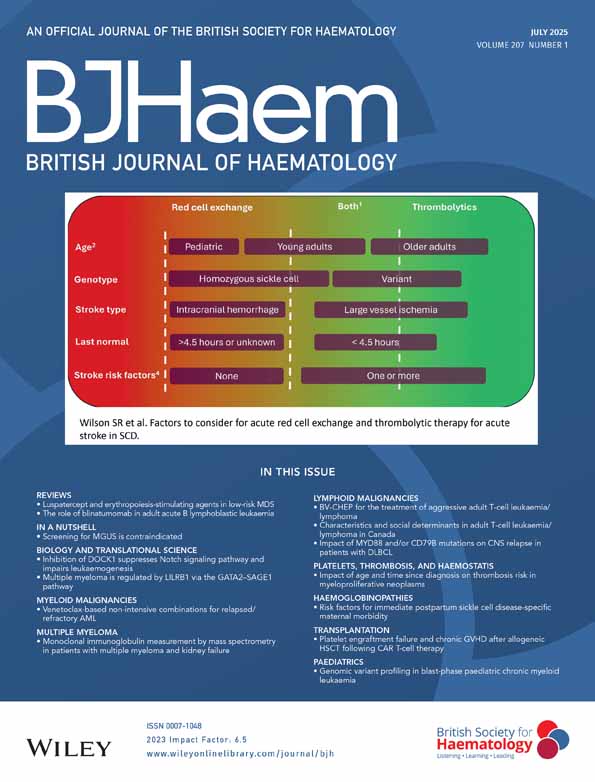Response to thalidomide in progressive multiple myeloma is not mediated by inhibition of angiogenic cytokine secretion
Abstract
Thalidomide (Thal) is a drug with anti-angiogenic properties. To explore whether the effect of Thal on angiogenesis is associated with a reduction of angiogenic cytokine levels in progressive multiple myeloma (MM), plasma levels of basic fibroblast growth factor, vascular endothelial growth factor, interleukin 6, tumour necrosis factor-α and hepatocyte growth factor (HGF) were measured in 51 patients at 0, 3 and 6 months of Thal therapy. After 6 months of treatment, 26 patients were considered to be responsive to Thal therapy, including 17 minimal responses, eight partial responses and one complete response. Only HGF (decreasing, P = 0·02) in the group of responsive patients showed a statistically significant change over a period of 6 months. Because HGF levels are known to correlate to MM tumour burden, we conclude that the mechanism of action of Thal in MM is not caused by a specific inhibition of angiogenic cytokine secretion.




